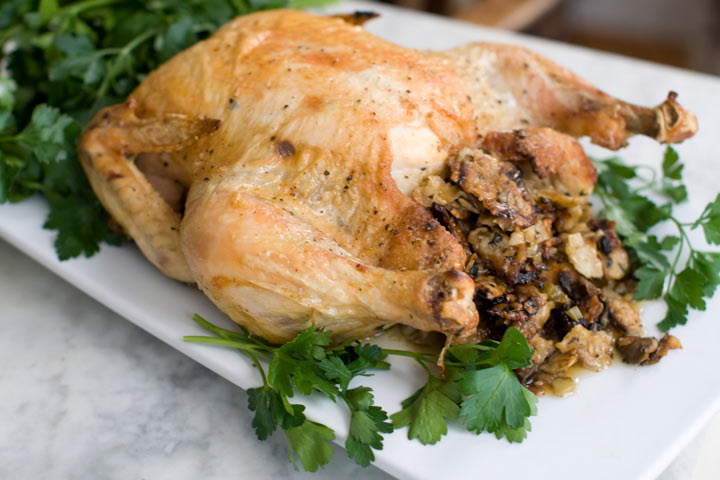TORONTO – Stop washing chicken before cooking – when you do, you’re spreading nasty bugs and bacteria all over your kitchen, U.K. health officials have warned.

Those germs they’re referring to are campylobacter – the most common form of food poisoning, according to the UK Food Standards Agency. The bacteria is to blame for 280,000 illnesses in that country each year and 80 per cent of the time it comes from poultry.
“If germs were visible to the naked eye, you would see that washing poultry just splashes bacteria all over you, your kitchen towels, your countertops and any other food you have nearby, such as raw foods and salads,” one advisory warns.
Read the FSA’s advisory here.
The FSA says that about 44 per cent of people wash chicken before cooking it. If the bacteria gets onto hands, work surfaces, clothes or utensils, you could get sick.
READ MORE: Is the ‘5 second rule’ real? Scientist says it’s all about location
Canadian microbiologist Jason Tetro suggests that the habit of washing chicken may have originated from cooking shows – chefs would prep the chicken by washing away any blood so it was easier to work with. The thing is, those kitchens came with a deep sink that would limit the spread of germs.
“If you happen to wash a chicken and you splash it, you can expect anywhere between 100,000 to one million bacteria in every millilitre,” Tetro, author of The Germ Code, warned.
A single droplet is about one-twentieth of a millilitre, but it’s still about 10,000 to 20,000 bacteria. In healthy immune systems, that’s enough to cause an infection, he said.
READ MORE: How norovirus can bring 600 cruise ship vacationers to their knees
“You’re probably going to have a pretty unhappy few days if you happen to lick a drop,” he said.
Aside from campylobacter, there’s the risk of salmonella, E.coli and norovirus if you’re working with produce, among other germs.
Campylobacter is corkscrew-shaped and it can live for about eight hours. Salmonella can be viable for at least eight hours but Tetro’s seen it survive for upwards of three days.
“(Campylobacter) is pretty sneaky, it can spread from chicken to chicken, it can spread in the environment and it can essentially survive in river waters,” he explained.
READ MORE: How do you treat the common cold? Here what’s works and what doesn’t
If you want to fight the good fight, you can kill the bacteria with some disinfectant. But it isn’t as simple as a wipe down with some cleaner. Consumers need to let the disinfectant sit for at least three minutes to kill the germs.
Health Canada doles out the same advice to its consumers: “Never rinse poultry before using it because the bacteria can spread everywhere the water splashes creating more of a safety hazard,” it says on its website.
Always wash your hands before and after you touch raw poultry and be careful not to cross contaminate surfaces and cooking equipment.
carmen.chai@globalnews.ca
Follow @Carmen_Chai




Comments